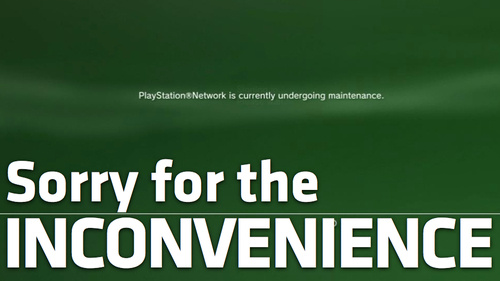
Sony, Sony, Sony… It seems as though the worst has yet to come. Today marked the second class-action lawsuit filed against Sony (first Canadian suit). Canadians can thank their spokesperson Natasha Maksimovic, a Humber College student from Ontario who yesterday filed the lawsuit on behalf of about 1 million Canadian Sony users affected by the Sony PlayStation Network and Qriocity’s breach of security mid-April. The suit itself is due to the breach of privacy and negligence.
Hit the jump for the full story.
Sony has been quite careful (if not a little suspicious) when it comes to updating their users about the fiasco, their work to fix the problem, and if users’ personal information was secure. Below is a little recap from the latest Sony blog update reviewing their response to the attack.
- Sony has been the victim of a very carefully planned, professional, highly sophisticated criminal cyber attack.
- We discovered that the intruders had planted a file on one of our Sony Online Entertainment servers named “Anonymous” with the words “We are Legion.”
- By April 25, forensic teams were able to confirm the scope of the personal data they believed had been taken, and could not rule out whether credit card information had been accessed. On April 26, we notified customers of those facts.
- As of today, the major credit card companies have not reported any fraudulent transactions that they believe are the direct result of this cyber attack.
- Protecting individuals’ personal data is the highest priority and ensuring that the Internet can be made secure for commerce is also essential. Worldwide, countries and businesses will have to come together to ensure the safety of commerce over the Internet and find ways to combat cyber crime and cyber terrorism.
- We are taking a number of steps to prevent future breaches, including enhanced levels of data protection and encryption; enhanced ability to detect software intrusions, unauthorized access and unusual activity patterns; additional firewalls; establishment of a new data center in an undisclosed location with increased security; and the naming of a new Chief Information Security Officer.
Sony is maintaining their innocence sticking to the story that they’re handling the situation accordingly – it seems as though no matter what site your on there’s someone expressing their frustration with Sony – “If you can’t trust a multinational corporation like Sony to protect your personal information, who can you trust? It seems to me Sony cares more about its games than its PlayStation users.” said in a statement by Natasha.

It’s a question that can’t be ignored after Sony viciously went after known hacktavist Geo-Hot for “Posting information depicting how to illegally mod a PlayStation 3 (or jailbreak) on the web for public viewing.” So, Sony, I’d like to see you carefully word your way around this – why is it you’re able to take down a hacker so swiftly when it comes to pirating your games, but when it comes to the security of your users all you can say is Thank you for your continued patience and support.
Though in the midst of all that has gone wrong for Sony – not to mention its impatient users, Sony still “manned” up and just as Microsoft did during the ’08 Xbox LIVE outage; Sony offered its users a “Welcome Back” gift bag.
We told the subcommittee about our intent to offer complimentary identity theft protection to U.S. account holders and detailed the “Welcome Back” program that includes free downloads, 30 days of free membership in the
PlayStation Plus premium subscription service; 30 days of free service for Music Unlimited subscribers; and extending PlayStation Plus and Music Unlimited subscriptions for the number of days services were unavailable.
We told the subcommittee about our intent to offer complimentary identity theft protection to U.S. account holders – So what about the other millions Sony users who don’t reside in the states?
The icing on all this whole disaster is Sony’s response to the Canadian lawsuit—or lack thereof.
